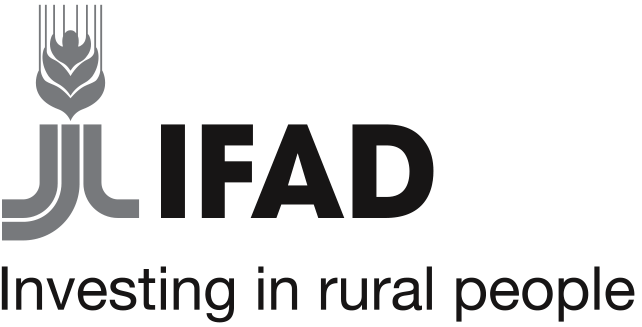Agricultural Value Chain Support Project, IFAD Impact Assessment Surveys, 2018
Senegal, 2017
Get MicrodataIdentification
SEN_2018_PAFA-IIAS_v01_EN_M_v01_A_OCS
Agricultural Value Chain Support Project, IFAD Impact Assessment Surveys, 2018
| Name | Country code |
|---|---|
| Senegal | SEN |
Agricultural Survey [ag/oth]
The Agricultural Value Chain Support Project (PAFA) was designed to improve the livelihoods of smallholder farmers in Senegal’s groundnut basin. The main intervention, implemented through producer organizations, consisted of a comprehensive package of agricultural inputs, machinery, technical advice, and commercialization contracts with market operators. The project targeted vulnerable smallholder farmers, women, and underemployed youths.
The project is articulated around five components: (1) agricultural diversification and access to local market (2) development and structuring of regional value chains, (3) national coordination, knowledge management and project management, (4) climate change adaptation, and (5) support services for rural finance. The project was innovative in that, in addition to providing support to farmers through producer organisations (POs), there was an emphasis on improving concertation and collaboration around key value chains.
For more information, please click on the following link https://www.ifad.org/en/web/knowledge/-/publication/impact-assessment-agricultural-value-chains-support-project-pafa- .
Sample survey data [ssd]
Households
Scope
The subjects covered by the survey are the following:
- Household roster
- Adoption of crops promoted by PAFA
- Agricultural production, productivity
- Agricultural income
- Economic mobility
- Food insecurity and diet diversity
- Crop and income diversification
- Resilience
- Market access.
Coverage
The project covers four regions in the Groundnut Basin, notably Diourbel, Fatick, Kaolack and Kaffrine.
Vulnerable agricultural households
Producers and sponsors
| Name | Affiliation |
|---|---|
| International Fund for Agricultural Development | United Nations |
| Name | Role |
|---|---|
| International Fund for Agricultural Development | Funding |
| OPEC Fund for International Development | Funding |
| Governement of Senegal | Funding |
Sampling
Given that the intervention was implemented at the PO (Producer Organization) level, a quantitative PO questionnaire as well as a detailed household questionnaire was administered to a sample of beneficiary and non-beneficiary PO members and leaders. A mixed-methods approach was used to determine the impact of the SPAM subsidy program.
Given the likelihood of spillover effects both within and across POs, the sampling strategy identified three groups in addition to the SPAM participants: 1. non-SPAM: members of PAFA POs who did not receive the SPAM (to measure the spillover within POs); 2. controls within: members of control POs in the regions of intervention; and 3. controls outside: members of control POs located outside of the regions of intervention.
Household-level data were collected from a sample of 2,233 rural households: 835 SPAM, 361 non-SPAM, 650 controls within, and 387 controls outside. Additionally, data were collected from 217 POs: 85 treated, 86 controls within PAFA regions, and 51 controls outside PAFA regions. An inverse probability weighting with regression adjustment (IPWRA) estimator was used to determine project impact.
No weighting.
Survey instrument
This impact assessment fielded two survey instruments; the household questionnaire which contains information on household demographics, agricultural production, other income generating activities, and a shock/resilience module; and a PO-level questionnaire where a detailed account of PO activities, their institutional structure, crop production, level of market access, and constraints faced were recorded.
Using the data collected, the impact of PAFA was estimated on household-level indicators such as agricultural production, economic wellbeing, and resilience, and at the PO -level on market access, commercialization and asset levels, income and crop diversification.
Note: some variables may have missing labels. Please, refer to the questionnaire for more details.
Data collection
| Start | End |
|---|---|
| 2017-07 | 2017-08 |
- Computer Assisted Personal Interview [capi]
Data Access
| Is signing of a confidentiality declaration required? | Confidentiality declaration text |
|---|---|
| yes | The users shall not take any action with the purpose of identifying any individual entity (i.e. person, household, enterprise, etc.) in the micro dataset(s). If such a disclosure is made inadvertently, no use will be made of the information, and it will be reported immediately to FAO |
Micro datasets disseminated by FAO shall only be allowed for research and statistical purposes. Any user which requests access working for a commercial company will not be granted access to any micro dataset regardless of their specified purpose. Users requesting access to any datasets must agree to the following minimal conditions:
- The micro dataset will only be used for statistical and/or research purposes;
- Any results derived from the micro dataset will be used solely for reporting aggregated information, and not for any specific individual entities or data subjects;
- The users shall not take any action with the purpose of identifying any individual entity (i.e. person, household, enterprise, etc.) in the micro dataset(s). If such a disclosure is made inadvertently, no use will be made of the information, and it will be reported immediately to FAO;
- The micro dataset cannot be re-disseminated by users or shared with anyone other than the individuals that are granted access to the micro dataset by FAO.
The use of the dataset should be referenced in any publication, using the following citation:
International Fund for Agricultural Development. Agricultural Value Chain Support Project, IFAD Impact Assessment Surveys, Senegal, 2018. Dataset downloaded from https://microdata.fao.org.
Disclaimer and copyrights
The user of the data acknowledges that the original collector of the data, the authorized distributor of the data, and the relevant funding agency bear no responsibility for use of the data or for interpretations or inferences based upon such uses
Metadata production
DDI_SEN_2018_PAFA-IIAS_v01_EN_M_v01_A_OCS_FAO
| Name | Affiliation | Role |
|---|---|---|
| Office of Chief Statistician | Food and Agriculture Organisation | Metadata producer |
Metadata version
SEN_2018_PAFA-IIAS_v01_EN_M_v01_A_OCS_v01
